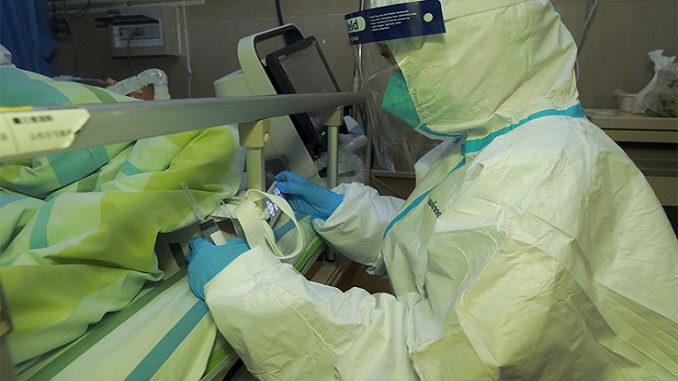
As the United States works overtime to screen thousands for the novel coronavirus, a new blood test offers the chance to find out who may have immunity – a potential game changer in the battle to contain infections and get the economy back on track, Reuters reported.
Several academic laboratories and medical companies are rushing to produce these blood tests, which can quickly identify disease-fighting antibodies in people who already have been infected but may have had mild symptoms or none at all. This is different from the current, sometimes hard-to-come-by diagnostic tests that draw on a nasal swab to confirm active infection.
“Ultimately, this (antibody test) might help us figure out who can get the country back to normal,” Florian Krammer, a professor in vaccinology at Mount Sinai’s Icahn School of Medicine, told Reuters. “People who are immune could be the first people to go back to normal life and start everything up again.”
Krammer and his fellow researchers have developed one of the first antibody tests in the United States for COVID-19, the disease caused by the new coronavirus. Krammer said his lab is busy distributing key ingredients for the tests to other organizations and sharing the testing procedure. He is transferring the work to Mount Sinai’s clinical lab this week so it can begin testing patient samples.
Antibody tests won’t face the same bureaucratic hurdles diagnostic testing initially did. The U.S. Food and Drug Administration relaxed its rules last month, and body-fluid tests can proceed to market without full agency review and approval.
Several private companies have begun selling blood tests for COVID-19 antibodies outside the United States, including California-based Biomerica Inc and South Korean test maker Sugentech Inc. Biomerica said its test sells for less than $10 and the company already has orders from Europe and the Middle East. Chembio Diagnostics Inc CMI.O of New York said it received a $4 million order from Brazil for its COVID-19 antibody test, and it plans a study of the test at several sites in the United States.
Such tests are relatively inexpensive and simple, usually using blood from a finger prick. Some can produce results in 10 to 15 minutes. That could make ramping up screening much easier than for diagnostic tests.
Many questions remain, including how long immunity lasts to this new virus, how accurate the tests are and how testing would roll out, according to researchers and infectious disease experts. For now, the number of people who have been able to fight off the virus is unknown.

Be the first to comment